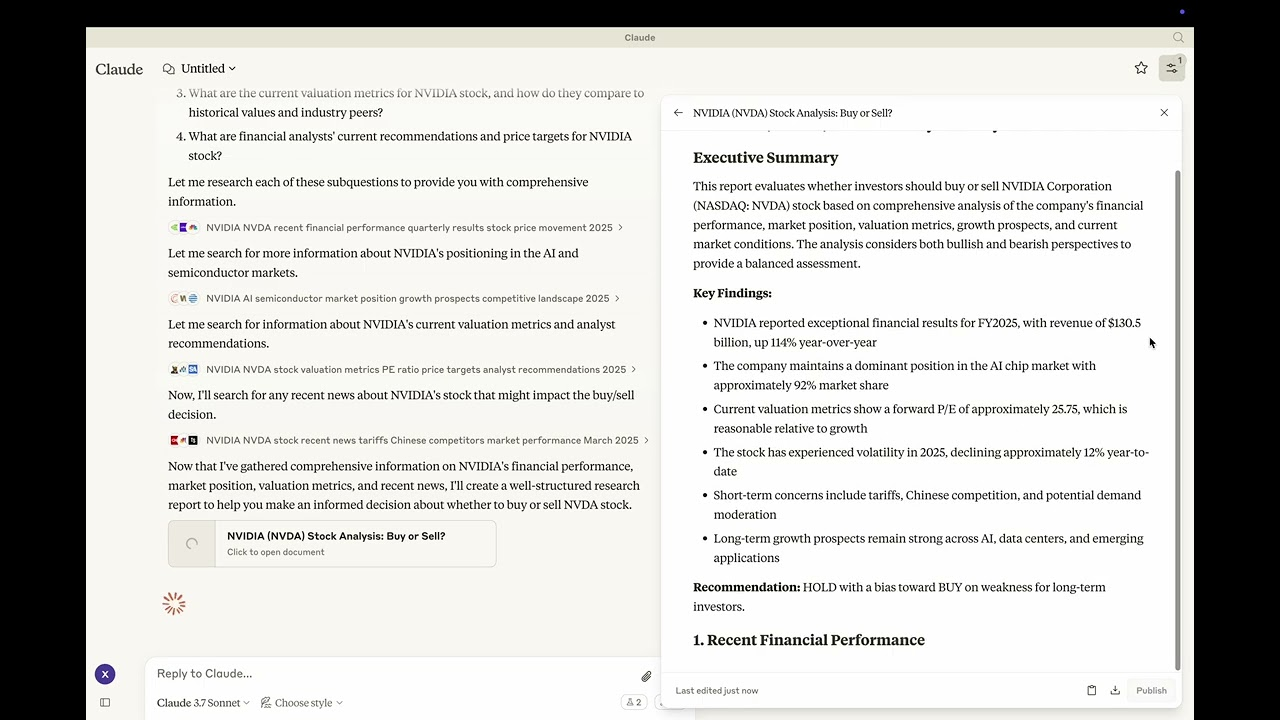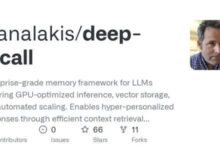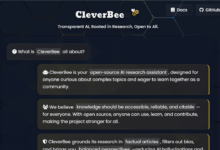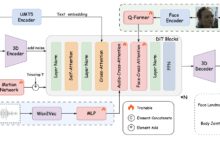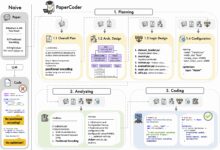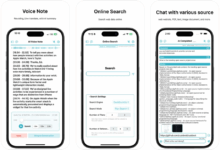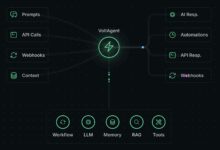General Introduction
MCP Server Deep Research is an open source tool that automatically generates structured research reports for complex problems through artificial intelligence and web search. Users enter a research question, and the tool breaks down the question, searches for authoritative information, evaluates the credibility of sources, and generates a Markdown report with citations. It is based on Model Context Protocol (MCP), with the Claude Desktop and other platforms integrate seamlessly for academic research, market analysis and content creation.
Function List
- Automatically breaks down research questions and generates sub-questions to cover multiple aspects of the topic.
- Integrated web search to find authoritative information and gather diverse perspectives.
- Evaluate the credibility of the source, generating a scale of 0 to 1.
- Integrate information from multiple sources to generate structured Markdown research reports.
- Support for customizing the depth and breadth of research and controlling the level of report detail.
- Provide a clear list of citations to ensure traceability of content.
- Integrate with MCP-compatible platforms such as Claude Desktop to extend functionality.
Using Help
Installation process
To use MCP Server Deep Research, you need to install a Python environment and configure Claude Desktop.The following are detailed steps:
- Checking system requirements
- Make sure Python 3.8 or later is installed. Run the following command to check:
python --version - Install Git for downloading project code:
git --version - A virtual environment is recommended to avoid dependency conflicts:
python -m venv venv source venv/bin/activate # Linux/Mac venv\Scripts\activate # Windows
- Make sure Python 3.8 or later is installed. Run the following command to check:
- Cloning Project Warehouse
Download the code from GitHub:git clone https://github.com/reading-plus-ai/mcp-server-deep-research.git cd mcp-server-deep-research - Installation of dependencies
Project useuvManaged dependency, but not provided by the warehouserequirements.txtDocumentation. Based on the official documentation and conventions of similar projects, it is presumed that the dependencies include therequests,pydanticand other Python libraries. Installationuv::pip install uvfor want of
requirements.txtIt is recommended to run the project directly and manually install the missing libraries according to the reported errors, or refer to the official documentation for subsequent updates. Usually required libraries can be installed with the following commands:pip install requests pydanticIf the project updates its dependency management (e.g., adds
pyproject.tomlmayberequirements.txt), please check your GitHub repository for the latest commits. - Installing Claude Desktop
- surname Cong claude.ai/download Download Claude Desktop (macOS and Windows supported).
- Once installed, open the app and log in to make sure your internet connection is working.
- Configuring MCP Server
Edit the configuration file for Claude Desktop to add the MCP Server settings:- Configuration file path:
- macOS.
~/Library/Application Support/Claude/claude_desktop_config.json - Windows.
%APPDATA%\Claude\claude_desktop_config.json
- macOS.
- Add the following (published server configuration):
{ "mcpServers": { "mcp-server-deep-research": { "command": "uvx", "args": ["mcp-server-deep-research"] } } } - If using a development version of the server, configure it as:
{ "mcpServers": { "mcp-server-deep-research": { "command": "uv", "args": [ "--directory", "/path/to/mcp-server-deep-research", "run", "mcp-server-deep-research" ] } } }commander-in-chief (military)
/path/to/mcp-server-deep-researchReplace with the actual project path.
- Configuration file path:
- Start the server
Run in the project directory:uv run mcp-server-deep-researchUpon startup, the server loads the
deep-researchPrompt for a template and be prepared to accept research questions. If prompted for missing dependencies, install the libraries mentioned in the reported error.
Usage
The core feature of MCP Server Deep Research is automated research report generation. Below is the operation flow:
1. Preparation of research questions
In Claude Desktop, open the MCP Prompt template and select the deep-research.. Enter a specific research question, for example:
- "Analyzing Artificial Intelligence in Healthcare."
- "Examining the latest technological advances in sustainable energy."
Clear questions improve the quality of the report.
2. Configuration study parameters
Configure tuning parameters via JSON:
depth: Depth of study (1-5, with higher values providing more detail).breadth: Breadth of research (1-10, the higher the value the more topics covered).
Example:
{
"query": "人工智能在医疗领域的应用",
"depth": 3,
"breadth": 5
}
Set the parameters in the Claude Desktop input screen.
3. Implementation studies
After submitting a question, the tool automatically executes it:
- Refinement of the problem : Decompose the main problem into sub-problems (e.g., "The role of AI in diagnosis", "The use of AI in drug discovery").
- Web Search : Use Claude's built-in search to find scholarly articles, news, and more.
- content analysis : Assesses source credibility (rating 0-1, based on authority and timeliness) and screens for high-quality information.
- Report Generation : Consolidate information and generate Markdown reports with overview, analysis, conclusions and citations.
4. Viewing the report
The report is saved to dist/ folder with a file name that is a short description of the research question (e.g. ai_medical_applications.md). Reporting structure:
- introductory : Outline the problems and objectives.
- main part : Segmented presentation of sub-problem analysis.
- reach a verdict : Summarize key findings.
- quote : List the sources and their credibility ratings.
Users can open Markdown files or import them into tools such as Obsidian for editing.
5. Commissioning and logging
If report generation fails, check the logs:
- macOS.
tail -n 20 -f ~/Library/Logs/Claude/mcp*.log - Windows.
Get-Content -Path "$env:APPDATA\Claude\logs\mcp*.log" -Tail 20 -Wait
The log shows the search process and error messages.
Featured Function Operation
- Subproblem generation : Automatically breaks down complex issues, such as "sustainable energy" into "advances in solar technology" and "cost-effectiveness of wind energy".
- Credibility assessment : Sources are rated on a scale of 0-1, with preference given to those above 0.7 on the basis of authority and timeliness.
- Markdown Reports : Formatting is uniform, contains headings, paragraphs, and citations, and is suitable for academic or professional use.
- Flexible parameters : Adjustments
depthcap (a poem)breadth, generating short summaries or detailed analyses.
caveat
- Ensure that Claude Desktop is logged in and has a stable network, and that Internet is required for the search function.
- high
depthmaybebreadthMay extend runtime, default recommended for initial use (depth=2,breadth=4). - Check GitHub repositories regularly
mainBranch out and get updates. - shortage of
requirements.txtThis may lead to installation problems, so we recommend checking the official documentation for updates or submitting an issue to ask about it.
Developer Support
If you need to customize the functionality, refer to the "Development" section of the official documentation:
- synchronization dependency ::
uv sync
- Building distribution packages ::
uv build
The generated package is located in the dist/ Catalog.
- Posted to PyPI ::
uv publish
Developers can contribute code or documentation by submitting a pull request through GitHub.
application scenario
- academic research
Graduate students write a literature review, enter a question, and then the tool searches academic resources, generates a report, and saves time in organizing. - market analysis
Analysts study industry trends such as "Cloud Computing Market Forecast 2025" and tools collect authoritative data to generate analytical reports. - content creation
Reporters prepare background information for articles, tools provide reliable information and citations, and generate structured reports. - Educational support
Teachers prepare instructional materials, enter topics, and then the tool generates reports containing up-to-date information suitable for classroom use.
QA
- Is there a fee for MCP Server Deep Research?
It's completely free, under the MIT license, and the code is publicly available on GitHub. - Do I have to use Claude Desktop?
Yes, the current version relies on Claude Desktop's MCP framework. - How is the credibility of the report assured?
Sources are filtered by credibility ratings (0-1), prioritizing information with ratings higher than 0.7, and users can verify citations. - Does it support offline use?
Not supported, web search requires an internet connection. - How to deal with missing requirements.txt?
Try installing common libraries (such asrequests,pydantic), or follow the GitHub repository for updates and submit issue queries.


